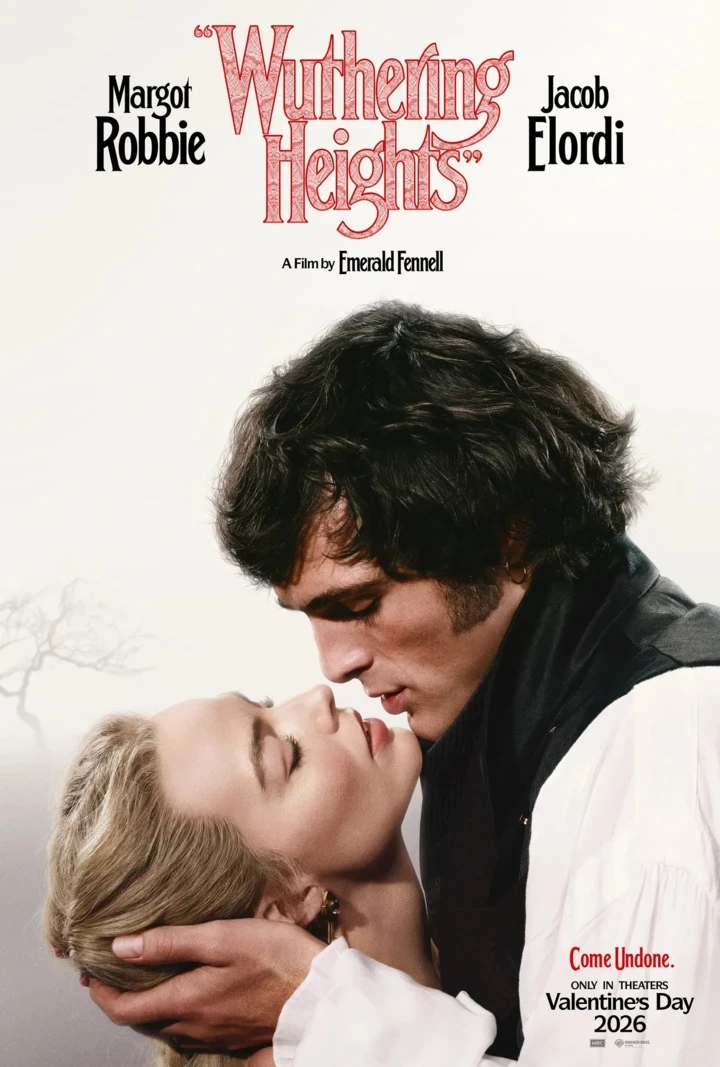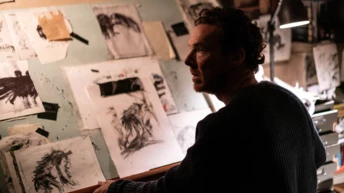
Save this storySave this storySave this storySave this story
When I was a child, war was a secret. And you certainly couldn’t call it war. It was known as the Troubles. Even its name was a kind of disguise.
The Troubles were what my parents whispered about in the kitchen at night after my siblings and I had gone to bed. I would sometimes slip out from under the covers and onto the staircase, looking down at the light coming from our farmhouse kitchen, listening to hushed voices that were so soft I had to hold my breath to hear. When they talked about the Troubles, my parents called each other by their names, not Mom and Dad.
I asked incessant questions and rarely got answers. The more the answers were fudged, the more I wanted to know. How is bread the body of Christ? How does fertilizer make a bomb? What is a Fenian? By the time I reached my third question, my mother would end the conversation, shouting “Whisht!” This meant shush in Northern Ireland. This is all so unfair, I thought. Nobody ever gives me a real answer.
I grew up on a small pig and sheep farm tucked within rolling green hills in Northern Ireland. When you stopped and looked around, you would see a spectacular collage of different shades of green spread out into the horizon. The air smelled like fresh wet earth. Motorists slowed for tractors and herds of sheep and cattle on the move. Our farm was about seven miles north of the border with the Republic of Ireland, and very close to the restive rural areas of South Armagh, where the farmland sheltered units of the Irish Republican Army and also fortified hilltop outposts of young, often terrified British soldiers.
The I.R.A. had launched a deadly campaign against the British in the nineteen-seventies, hoping to unite the full island of Ireland free from British rule. County Armagh was where many of the most senior leadership of the organization lived, and, by the time I was born, in the public hospital of the town of Craigavon, in 1984, it had become a heavily militarized zone. Improvised explosive devices that could be detonated from afar using a radio were refined there. Village police stations were surrounded by blast walls and huge metal frames to protect against regular mortar and car-bomb attacks. Ambushes of British soldiers became so common in certain areas that the British army began transporting troops primarily via helicopter. I remember the slow thumping sound of massive Chinooks flying low over our farm, watching them land in fields and take off in seconds, the grass underneath trembling flat as soldiers with camouflage paint on their faces scattered into the hedges.
Trotting around country lanes on my pony, I sometimes came across the men walking in formation. If they saw me, they hid in ditches until I passed. I’m sure I was hardly a threatening vision—a little girl in gum boots and corduroy on top of a muddy pony, stopping to reach across hedgerows to pick wild berries. I desperately wanted to stare, but instinct stopped me. My parents’ “whisht”s taught me that. I would push my pony, Lady, onward, keeping my eyes firmly on the horizon. In those moments, I obeyed the unspoken rule: acknowledging the Troubles only invited them in. I would pretend to ignore the troops, quietly desperate to ask what in the world they were doing.
It wasn’t unusual for me and my siblings to be away from home a lot, heading off to relatives’ houses. Fanny Marr’s house was my favorite place to go. Fanny was in her seventies and adored children but didn’t have any of her own. I was about seven years old when my sister Laura and I started spending summers at Fanny’s cottage on the rugged County Down coast. The area was still subject to the sectarian social divisions across Northern Ireland, but, by the late nineties, was spared much of the violence. Our tiny seaside world there felt sheltered from it all. Eventually, as Laura grew older, I visited Fanny on my own. It felt like heaven. Simply driving down the grassy laneway to her cottage, I could feel a weight lift from me.
Fanny had grown up in Belfast and had gone on to work as an executive for various companies there. She never married and had travelled the world. To me, this made Fanny a unicorn: a woman with a good job and a house of her own. In the evening she would make me cups of cocoa, and, in between moves in the Scrabble game we played by the fire, she talked about books and films and faraway countries. Biographies of famous British broadcasters and politicians lined her shelves. She loved Humphrey Bogart movies, introducing me to “Casablanca” on her tiny TV in the corner of the living room.
After these visits to Fanny’s cottage, I always went home to the farm with a heavy heart. In my bedroom at night, I leaned low over world atlases and National Geographic magazines. I traced a finger over the maps, mouthing the names of places like Lalibela, Ethiopia, Antarctica, and the Cape of Good Hope. My heart would beat faster at the symbols of mountains, beaches, and roads I ached to travel, places that even Fanny hadn’t been.
As I grew older, the weekend papers brought news from the conflict in the Balkans. The outside world in the Sunday Times magazine seemed like a much less fair place than I had pictured it. Photographs showed elderly women in headscarves, weeping. I thought of my grandmother and wondered how anyone could take a picture of an old woman crying and not stop to help her fix whatever problem she had. Who was that old lady? Where were her children? What did she say to the person who took her picture?
I inhaled a biography of Martha Gellhorn. I was thrilled to learn that the life I desperately wanted had been lived already, by a remarkable and pioneering woman. A life lived deliberately, according to my own design and not some arbitrary set of four-hundred-year-old rules. This life was about travel and adventure, actually charting your own course in the world, and the ability to make some sort of difference, however vague that felt. Martha Gellhorn had lived in Cuba and on the Kenyan coast. She had reported on the Spanish Civil War, the invasion of Normandy, and the liberation of the Nazi concentration camps.
I read, enraptured, about how Dervla Murphy, the Irish adventurer and travel writer, went to Ethiopia in the nineteen-sixties and bought a mule, upon which she trekked across the country, solo. I learned how Gertrude Bell, a British diplomat, explorer, archaeologist, mountaineer, writer, and linguist, had campaigned for Iraqi independence in the nineteen-twenties and helped to establish its national museum.
The more I read, the more I questioned authority. In the increasing insolence of my teen years, I argued with male preachers who visited our Sunday-school lessons to lecture about the Protestant Reformation and the errors of Catholicism. The preachers were always men, and they were often deeply bigoted against Catholic communities. I had grown old enough to read history books about the Troubles and the civil-rights marches and the abuses under British rule. “He’s not even an educated man,” I scoffed to my startled mother when I came home from Sunday school one day. “He shouldn’t be teaching us history he knows nothing about.” Authority figures, in my world, rarely lived up to their titles.
TV news was the one place I saw living, breathing women being heard. It was as though the TV screen was a special portal into another world, one where women were asking questions of powerful people and—my eyes widened—they were answering them! Where women travelled all over the world to explain things to us and help us understand. I saw the power these women journalists held: Kate Adie and Orla Guerin of the BBC reported from wars, revolutions, and environmental disasters; women like Moira Stuart anchored the shows and shared breaking news with us all. I looked around the room when the news was on and saw my family watching. When these women spoke, everyone was whisht.
Soon I was going to leave home and go to college, I told myself. I was going to travel all over the world and keep going. I felt like the only way to crawl out of South Armagh was to make peace with my sense of not belonging. I don’t need to belong anywhere, I thought. I can belong on the road.
I focussed with a mighty intensity on my studies, entirely as a means to an end—a way out. My high-school politics teacher, Mr. Millar, could see my appetite for international- and current-affairs books. He encouraged me to read about various political systems, in the U.K. and the United States; landmark legal rulings like Roe v. Wade; and diplomatic scandals like the Iran-Contra affair. He made the world seem like a place where good and bad could be deciphered, decoded, and understood.
In the midst of one of my daydreams of driving four-by-fours across the African Sahel, camping in the Panjshir Valley, meeting revolutionaries in Tiananmen Square, riding a horse across Cuba, my mom yelled up the stairs to my bedroom that there was a phone call for me. It was Mr. Millar.
I stampeded down the stairs and grabbed the phone in both hands. “There’s a woman here from the United States who is looking for potential scholarship students to go study there,” he said.“I think this is important. Can you come and meet with her?”
“I’m coming now, I’ll be there!” I told him.
The lottery of birth had placed me in a family where education was everything. With Mr. Millar’s help, I was recruited for a one-year scholarship at the Lawrenceville School, a boarding school near Princeton, New Jersey. I went on to study literature and politics at the University of York, in England.
University was a hurdle I had to clear to begin a life in journalism, but I adored my studies, reading English literature and attending classes on the Islamic world and the Middle East, developmental aid in Africa, and political philosophy. My new best friend, Ruth, and I eventually worked at the student newspaper together: she was editor-in-chief and I was deputy news editor. Ruth had grown up in various countries in East Africa because her parents worked in international development. We would sit up at night in the newspaper office, a mess of piles of old issues and donated computers, drinking cans of beer and smoking rolled cigarettes, talking about our future careers.
I beamed with triumph when, after graduation, I got a monthlong internship at the BBC. All those years watching and admiring the capable, authoritative female anchors on the evening news, and now I would be on the inside. The one catch: I was being assigned to Northern Ireland. I’d wanted to go to London. Still, not even the word “Belfast” on the screen in front of me could make me feel as though this was anything other than the next chapter of my life starting.
When I called Aunt Fanny with the news, she insisted that I spend the month staying with her. She was so excited to see me that she had stocked the fridge with beers and piled the fire high with logs until it could melt your face from the doorway. On my first night in Belfast, she found some old office clothes of hers from the fifties and sixties and pulled them out of the upstairs closet and onto the bed. She was delighted to have someone to wear her beautiful vintage cashmere sweaters and wool jackets.
On the first morning of my internship, I walked purposefully into Belfast city center. As I rushed toward my new life, images of my old one surrounded me. Red brick and cement under the constant mist of fine rain too faint to see—you would just feel it on your face. The soft rolling hills surrounding the city that appeared when a cloud shifted. The old Harland and Wolff shipyard cranes, two angular yellow steel squares, squat over the brown and green of the city, next to the slow-moving River Lagan. Woodsmoke rose from the chimneys, adding to the acid earthiness of the misty air. Northern Ireland seemed both new and familiar at the same time, like walking through a memory that felt less painful than before.
I was given a guest pass at the reception desk and was shown to the newsroom upstairs. The two bosses shook my hand and then returned to their computer screens, telling me to find a seat anywhere. They began talking intensely to each other about plans for that night’s show.
I sat at a desk in the middle of the room, quiet as a mouse, watching the newsroom around me. Finally, I overcame my shyness and approached a reporter staring into a computer screen, fingers typing violently. I asked if there was anything I could help him with. “If you are going anywhere today and there’s room, I would love to come,” I appealed, pulling awkwardly at my inherited sweater. I tried to mask my English accent now, to once again be as Northern Irish as I could.
The journalist gave me a mildly irritated look. I was getting nowhere with him. For much of my time in Belfast, I felt like an impostor, consigned to being moved around the newsroom on rotation to the tutting and head-shaking of busy reporters and editors.
In the evenings, as I marched back across the city, under patches of orange street lights, Fanny would be lighting a fire in the dining room and finishing preparations for a three-course dinner cooked from scratch. She used things like ivory-handled cutlery, fine china, and linen napkins. She would tidy her hair for dinner and decant the wine, niceties that were foreign to us in Armagh. I relaxed into that feeling of being securely loved by an adult just simply for being myself—the way I told a story, my jokes, my constant refusal to wear shoes, whatever it was about me she seemed to enjoy.
“Maybe I should marry Mark now I’m finished at college,” I said one night toward the end of our month together. My college boyfriend was in a northern English town working on his first job, calling every day. I had promised to move back in with him once I was done with my internship. After a careful silence, staring hard at her Scrabble letters, Fanny looked up at me and said, “I wonder if he’s fun enough for you, Janie.” We both knew the answer.
On my last day at BBC Northern Ireland, I decided, was the fateful moment I might—would, must!—raise the subject of a job with the management. In a meeting with the bosses, I commenced my “job, please” speech—I would be willing to do anything if they didn’t have a job for a reporter. I could start as a junior member of the staff and work the news desk, answer phones, report to the editors, research story ideas. I was not fussy at all. Eventually I dreamed of being an on-camera reporter, but to get there I would do any job at all and learn the ropes.
I held on for the verdict, trying to look calm, my legs folded twice over. The response, as I recall it, was that there might, in time, be a position for me as a regional weather presenter. This, I realized, was not my ticket.
The next week, I sat cross-legged on the floor of Mark’s tiny apartment in the North of England, bent over my laptop. I scrolled through media-job Web sites for anything that was entry-level. It was cold outside, and frost rimmed the edges of the room’s only window. I pulled the sleeves on my wool sweater down to my hands and rocked back and forth against the chill. My days revolved around searching for jobs and shopping for groceries to cook in time for Mark’s return home.
We had talked in the local pub about my hopes and dreams for my career. All the cities we could live in. The travel, the teams, the bureaus around the world for newspapers and broadcasters. In truth, I had talked while he cradled a pint of beer in his hand and stared at me, occasionally glancing over my shoulder and around us. “Maybe if I get a job on the south coast of England you can commute into London on the train,” he had said. Boredom threatened to give way to sadness.
I don’t want to buy a house, I thought. I don’t want a mortgage. I don’t want to get married, and I don’t want to commute to a job I hate. I cannot live that life. I knew in my soul it would be a sort of death for me.
I flicked over to another open tab on my laptop, filled with Web sites for Arabic-language schools from across the Middle East. One in Yemen made me smile when I hit Enter, playing the haunting singular melody of an oud, a traditional Arabic stringed instrument similar to a guitar. Images of Sana’a, the capital, surrounded information about the school. Tall ancient structures made of brick, with ornate white window frames, sat between ochre mountains.
In another tab, I studied a map of Yemen: its roughly rectangular shape, the Red Sea and Arabian Sea against its shores, the mountains and deserts. “There is a certain madness comes over one at the mere sight of a good map,” Freya Stark, the British-Italian explorer and travel writer, wrote. Stark had lived in Baghdad, travelled across Yemen with archaeologists, and eventually drew maps of much of the Middle East. She had found her way.
On my map, Yemen was a tidy oblong chunk at the bottom of the Arabian Peninsula. I knew little else. Jagged mountain symbols were placed around Sana’a. With my finger, I traced the names and places, and I felt my heart swell with excitement. I had no idea how I could afford to get there.
Later that day, a white envelope arrived in the mail with Fanny’s ornate handwriting on the front. I tore it open and pulled out a check in my name for three thousand pounds, folded in a letter. “Please use this for something fun,” Fanny had written.
Fanny had given me—at that vital moment in my young life—something even more valuable than money. She gave me options. The door to a world I wanted to be a part of had opened just enough for me to slip through it. I returned to my laptop, wrote to the school in Yemen with the catchy Web-site music, and asked for a spot. I would stay for as long as I could afford.
Weeks later, I was sitting in the passenger seat of Mark’s car, staring at the distant “Welcome to Heathrow” sign up ahead. It moved painfully slowly toward us in the heavy traffic. The atmosphere in the car was stifling. We both struggled to say anything.
“I’ll be back before you know it!” I chirped. No, I wouldn’t. Somewhere inside me, I knew I was never coming back.
It seemed that all the men around me had been puzzled and amused when I talked about my dreams of being a foreign correspondent. But this one was quiet now.
I didn’t yet know how to end things, how to look someone in the eye and say goodbye. I burned to get out of the car and as far away from this scene in my life as I could. The rain never stops in this country, I thought, as drops of water fell down the windshield. When we pulled up to the departures terminal, I leapt out of the car, trying to look calm. “Call me when you arrive!” Mark said, smiling and pulling me into his chest for a hug. “Thank you,” I said, my face against his sweater. And I meant it. Breaking free, I waved as I walked through the sliding doors. I had half my body weight in my rucksack, but for the first time in months, I felt lighter than air. ♦
This is drawn from “No Ordinary Assignment: A Memoir.”
Sourse: newyorker.com







